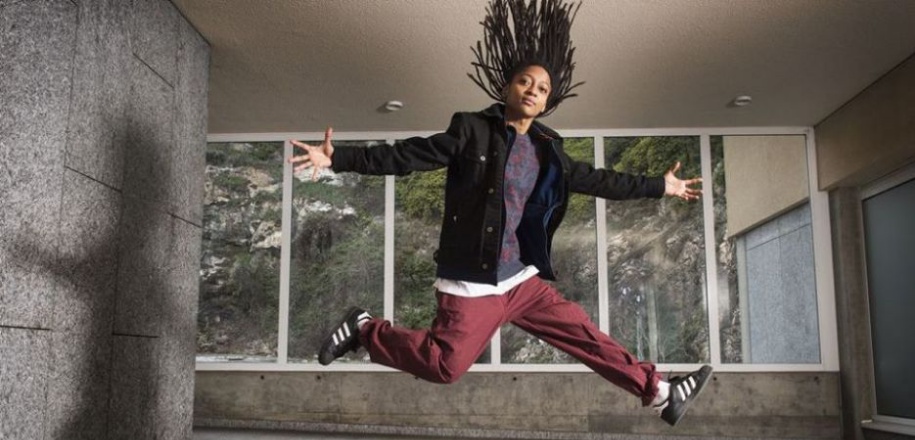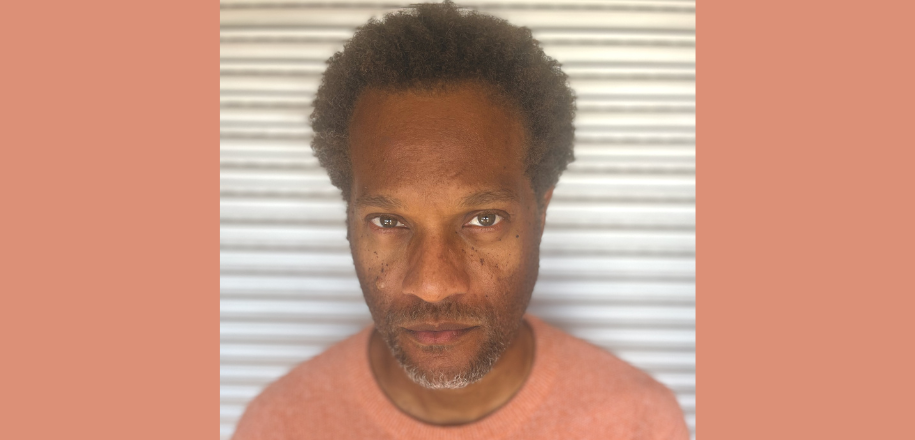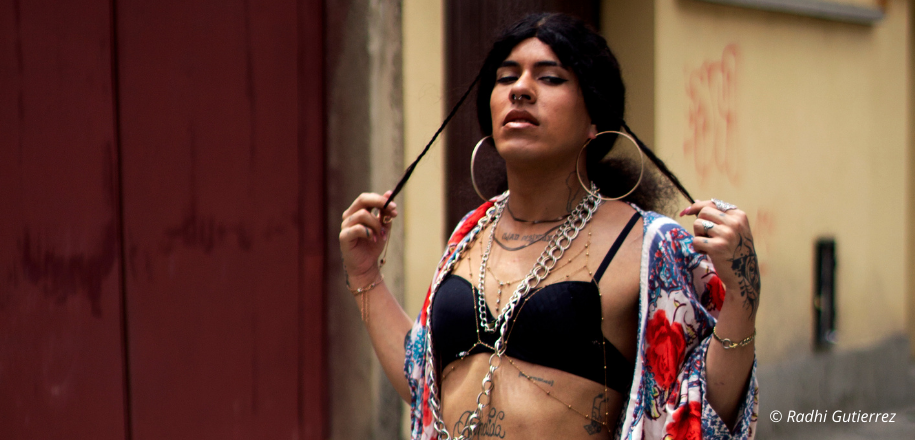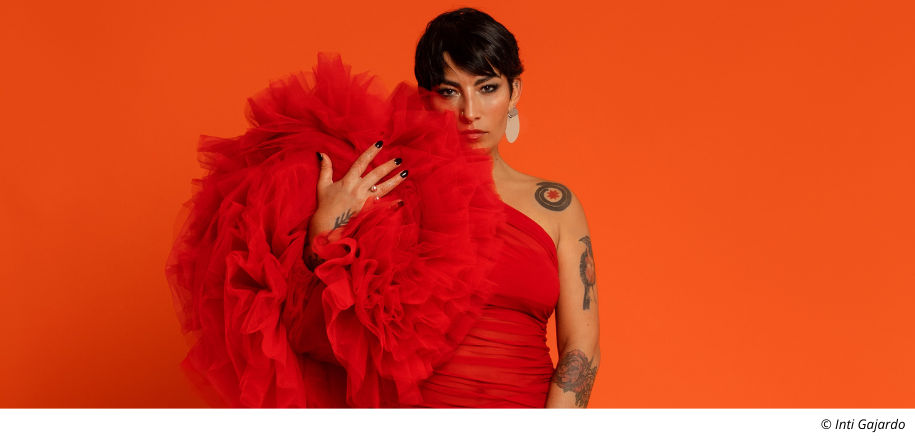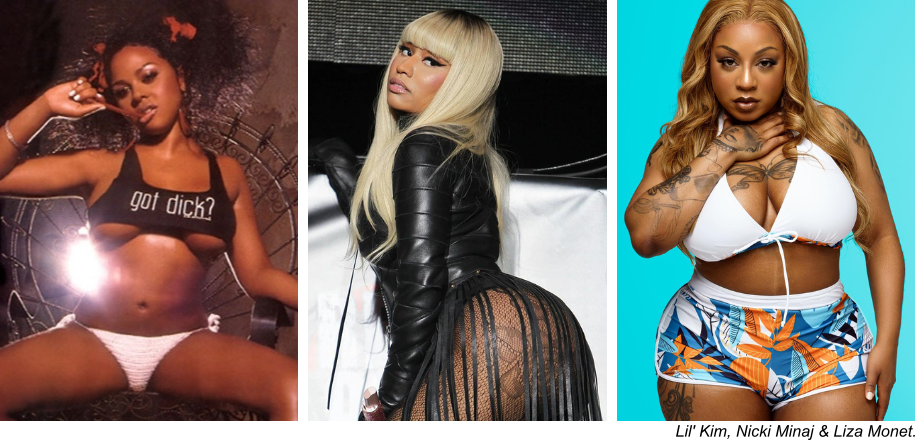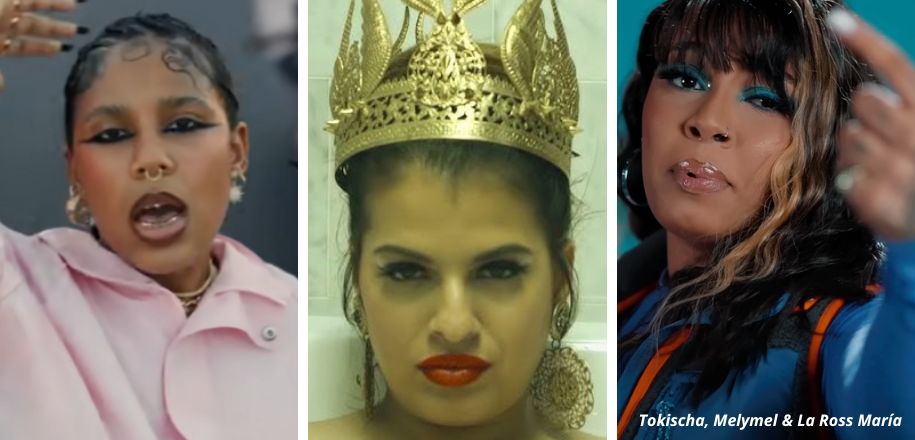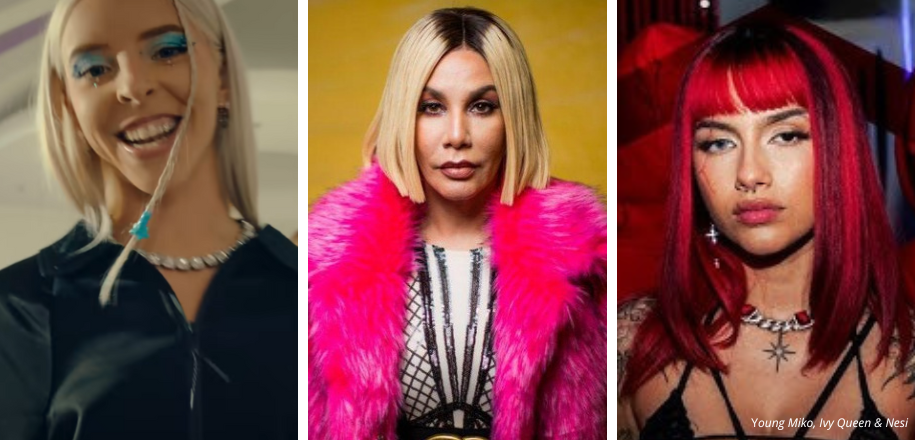How and when did you begin to be interested in hip hop?
When I lived in Ivory Coast as a child, I listened mostly to African music, gospel or the King of Pop. I was firstly interested in dancing. Michael Jackson had this way of moving that I had never seen before. He was like some kind of alien coming from the future. None of this moves looked like something I knew. I remember working on my moonwalk to look like him, just like all the other kids around me. I started dancing when I was 4 and that’s how I opened the door and entered the hip hop house.
You won the Freestyle World Championship in 2012. What did this recognition bring you?
My victory at the End of the Week World (EOW) in 2012 allowed many underground hip hop lovers to hear about my work. First, through all the delegations that participated that year, but also (and especially) thanks to the uncountable number of concerts I did afterwards.
As a matter of fact, I am the first and only woman who won this contest for now, the youngest and also the first Swiss. People were really surprised to see a “tiny young 21-year-old woman, coming from the tiny town of a tiny country “ compete against the best freestylers in the world in New York and win the trophy.
Many programmers and other organizations started to call upon me to do shows or improv demos. As I already said, I took my first step on stage through dancing at the age of 4 and it is something that really enriched my rap. When you dance, you train and get into condition to be on stage, like a football player before a match. Being directly in contact with the audience is really the main goal. And yet, when you rap, it’s not always the case. Most of the time, you learn to be on stage over a second phase. Therefore, I think that what may differentiate me from other artists, is the fact that most people who follow me today saw me live before listening to what I do on the internet.
Your songs are imbued with ragga sonorities. How did the toasting culture influence your love for freestyle?
I began listening to reggae and ragga when I was around 12. By the way, the first album I bought in my life was “Bob Marley – The Greatest Hits“. What I particularly liked when I discovered this culture was its philosophy. I got into freestyle years later. With other dancers, we were trying all hip hop styles: popping, locking, house dance, breaking, krumping, dancehall, raga jam… This is how I liked ragga. It’s only a few years later that I began to freestyle and that all these musical influences, which naturally guided my body, met in my music. I didn’t necessarily realize it then, because it’s a part of me, as well as African musical culture.
How do your Ivorian origins influence your music? Do you keep an eye on the female hip hop scene in Ivory Coast?
It’s hard for me to answer this question because I really feel that these are natural influences. My mixed origins, immigration, life experiences or the music that inspired me, and so many other things define my identity. And my music is me. So, obviously, all these things influence me and none of them is more important than the others.
I’m interested in the African hip hop scene, period. Women or men, it doesn’t matter. To me, music doesn’t have any gender. However, I think that as a woman, my interest in rap made by other women may be bigger. I remember that when I started, it was really hard for me to identify with femcees because there were so little of them. So that means I’m always curious and happy every time I discover a female rapper whose work I relate to. Being a woman in this crazy world is so complicated, and only a few stand out, that it feels good to see everywhere in the world others fighting for the same things as I am. Big up to Senegalese femcees Eve Crazy and GOTAL by the way. They kill!
Which women inspire you?
There are so many! Of all styles and backgrounds. Musically speaking:Lauryn Hill, Bahamadia, MC Lyte, Da Brat, Missy Elliott, Aaliyah, Yo-Yo, Lady of Rage, Casey, Keny Arkana, Ladea, Nina Miskina, Pand’Or, Rah Digga, Lin Que, Mother Superia, E.V.E, Foxy Brown, Dynasty, Rapsody, Coely, Nina Simone, Tracy Chapman, Mary J. Blige Aretha Franklin, Mahalia Jackson, Patra, Queen Omega, Lady Saw, Etana, Rokia Traoré, Angélique Kidjo, Cesaria Evora, Nach, Antoinette Allany and many others… I could also name historical figures, such as Harriet Tubman, Ching Shih, Angela Davis, Mère Teresa… Making a list is too hard. Many men inspire me too!
Do you consider yourself a feminist? Why?
No, for several reasons. The first one is that I can’t stand being labeled. I always thought and acted with my heart and my intuition, and both hate injustice. I didn’t have to know this word or its definition to react when I or another woman was being discriminated. My instinct always speaks out, as I always reacted toward racial or religious discriminations or any other “free attack against different people”. We must draw away as much as we can from patterns that destroy us in order to find ourselves. We have to identify with unique beings who are part of a universal balance, where all life forms equally matter. The real freedom is to Be, and be committed to ourselves, and therefore to the others. We should follow our heart, convictions and deep aspirations, refuse to lie to ourselves even if it means being alone in the world, and look at life’s bigger picture to understand things by ourselves. Once you are aware, you see and know, you no longer need to be a woman, man, Black, White, left-wing, right-wing, feminist, macho, Christian or Muslim. You are yourself and everyone. You just become “fair”, and for that, you must be free.
How did you meet British female rapper Oracy and what made you want to collaborate with her on the track “Que Du Love“, from your first album Tentative de survie, released in March 2016?
Oracy is one the one EOW UK AllStars. We already had some acquaintances and friends in common within the End Of the Weak community. I knew her work and she knew mine, and we were both fans of each other! In 2013, we met at the Femcees Fest festival in Saint-Etienne, France, where we were both booked. We had a natural connection, kept in touch and became friends.
Oracy and I had the same vision on “how to live our life” and music. We also share the same spiritual belief and that’s what “Que du Love” is about. It’s like an ode to the solution of all our problems. Benevolent Love.
You acted last year in the movie “Brooklyn“ directed by Pascal Tessaud, which was quite popular, especially in festivals. What did this experience teach you and what are your upcoming cinema or music projects?
Brooklyn was one of the most intense experiences in my life. My encounter with Pascal Tessaud and the whole team of the film will remain etched in my heart. I had some magical moments with some exceptional people, really enthusiastic, committed, brave, talented people with a real vision on art and life. Even though I live far from all of them and the shooting was sometimes hard, Brooklyn remains and will remain my family.
In the future, I’m open to act in other movies (you can see me in Marie et les Naufragés directed by Sébastien Betbeder that was out this year), even if my passion remains music and that it is what I aspire to do.
What are you listening to these days?
I’m listening to many different things like reggae artistes Chronixx or Jesse Royal, hip hop artists like Ocean Wisdom or Machine Gun Kelly, Swiss rap like La Base and Tru Comers, and several female singers like Camille Safiya, Oshun or Ibeyi.
What do you think about Madame Rap? What should be changed or improved?
I’m following you on Instagram and Soundcloud and I like it a lot. I discovered several great artists thanks to Madame Rap so thank you. Keep doing what you do! ONE LOVE.
Find KT Gorique on Facebook, Soundcloud and YouTube.

